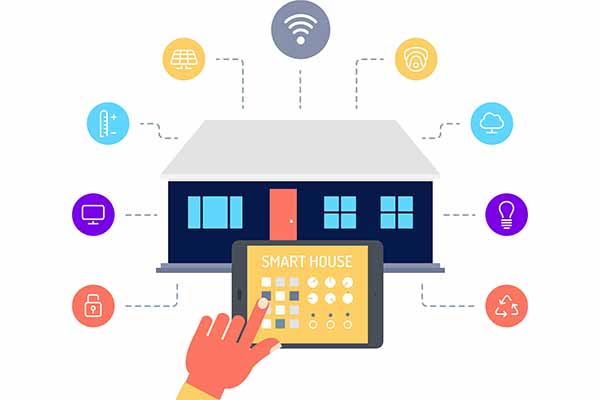
The Impact of IoT on Smart Homes
The Internet of Things (IoT) has revolutionized the way we interact with our homes. With the rise of smart home technology, homeowners can now remotely control their homes' lighting, security, heating, and other systems from their smartphones. IoT has made our homes more efficient, convenient, and secure than ever before.
The integration of IoT technology into smart homes has had a significant impact on our daily lives. In this article, we will explore the ways in which IoT has transformed smart homes and discuss the benefits and drawbacks of this technology.
Efficiency and Convenience
One of the primary benefits of IoT in smart homes is increased efficiency and convenience. With IoT devices, homeowners can remotely control their home's heating, ventilation, and air conditioning (HVAC) systems, lighting, and other devices. This means that you can turn off lights, turn down the thermostat, and lock the doors, all from the comfort of your couch or while on vacation.
Also Read:
Smart home technology also allows for automation, which can save time and reduce energy costs. For example, you can set your lights to turn off automatically when you leave the room or your air conditioning to adjust based on your preferred temperature settings. These small changes can add up and save homeowners significant amounts of money in the long run.
Security
Another significant impact of IoT on smart homes is the increased security that it provides. With smart home technology, homeowners can remotely monitor their homes through cameras and sensors. This means that you can keep an eye on your home, even when you are not there.
Smart home security systems can also alert homeowners to potential security breaches, such as a door or window being opened when no one is home. Additionally, some systems allow homeowners to remotely lock doors and windows, providing an extra layer of security.
Drawbacks of IoT in Smart Homes
While the benefits of IoT in smart homes are numerous, there are also some potential drawbacks that homeowners should be aware of. One significant concern is the potential for hacking and cyber attacks. As smart home devices become more prevalent, they also become more attractive targets for hackers.
Another concern is the potential loss of privacy. Smart home devices collect a vast amount of data about homeowners' habits and routines. While this data can be used to improve efficiency and convenience, it can also be used for nefarious purposes, such as targeted advertising or even identity theft.
Conclusion
Overall, the impact of IoT on smart homes has been overwhelmingly positive. With IoT devices, homeowners can enjoy increased efficiency, convenience, and security. However, as with any technology, there are potential drawbacks that homeowners should be aware of. By being vigilant about security and privacy, homeowners can enjoy the benefits of IoT in smart homes while minimizing the risks.
Keywords: IoT, smart homes, efficiency, convenience, security, automation, privacy, hacking, cyber attacks, data.
Read More:
That's it for this article.
Thanks for Visiting Us – fixyanet.com


0 Comments